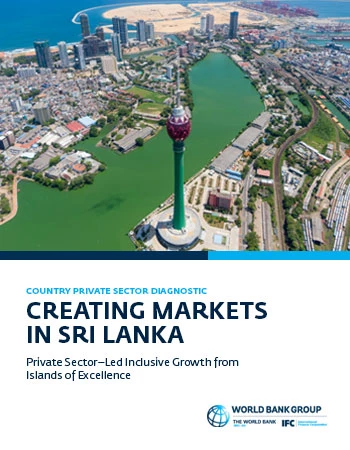Private Sector–Led Inclusive Growth from Islands of Excellence
Sri Lanka is a country of paradoxes. The country is currently facing serious economic challenges, but prior to this Sri Lanka’s economic performance since independence had generally been hailed as a success—with the lowest poverty rates, best social indicators, and highest per capita income in South Asia. This performance occurred amidst many distortions and an economy less open than its peers, largely reflecting the strong involvement of the state in the economy. This interventionist model of economic policy served the country well through the years of conflict and their aftermath, but its sustainability is now in question.
Sri Lanka needs new solutions to put its economy back on track. Indeed, even prior to the current crisis, the economy had slowed and progress on social indicators had been stagnating. Market distortions remain and have been exacerbated by the COVID-19 outbreak. Near-term growth prospects have weakened substantially and will be exacerbated by an already challenging environment of low growth and fiscal pressures. The Sri Lanka Country Private Sector Diagnostic seeks to understand how, despite these handicaps, Sri Lanka achieved positive economic and social outcomes in the past and to integrate these lessons into the building blocks of a realistic, forward-looking growth strategy.
Download
